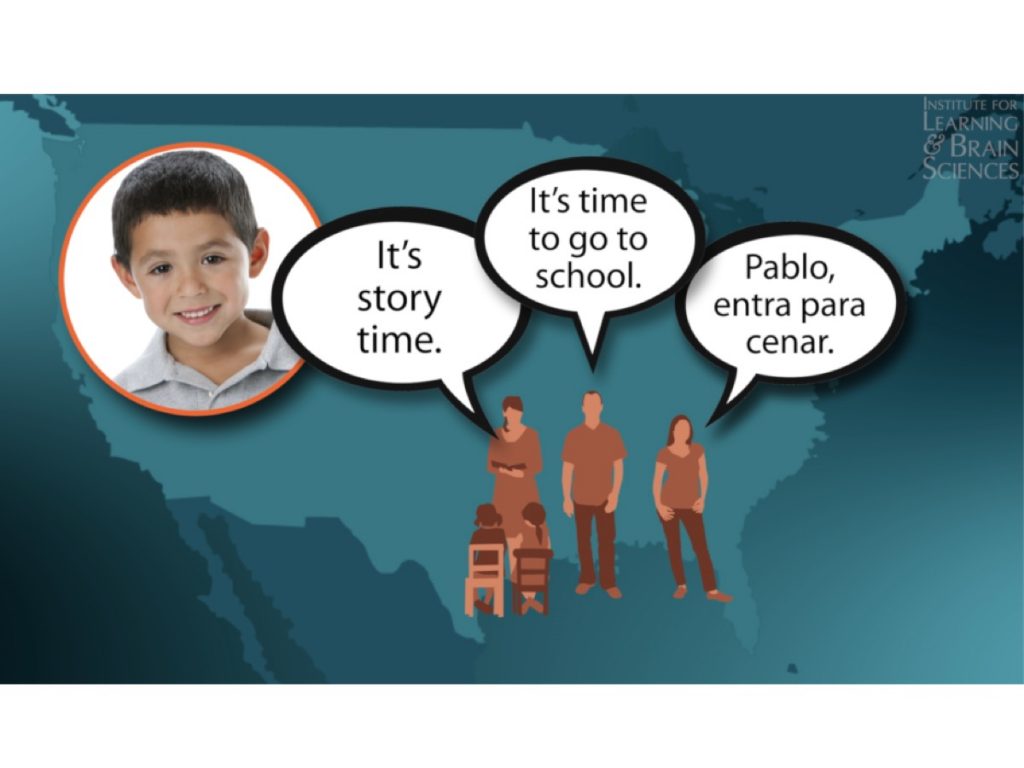
We know that language is the product of experience, whether a child is learning one or two languages. Bilingual children often experience different languages in different contexts. They may hear different languages at home and school or from different members of their family.
One study followed infants and toddlers learning both Spanish and English. It found a relationship between the number of words an infant hears and eventually says in each language. Infants who heard more English before age one produced more English words as toddlers. Infants who heard more Spanish before age one produced more Spanish words as toddlers.
Experience determines which language becomes our dominant, or most fluent language. Many factors determine our dominant language. They include the quality and amount of our exposure to each language, the age at which we learned each language, and the contexts in which we use each language.
Language dominance can change over time. Think of a child who spends most days with his Spanish-speaking mother until age 3. This child will likely be Spanish dominant. But later he attends an English-speaking school. His dominance might change to English. This is normal, and shows that language is a product of experience.
Next watch the video of a mother playing with her daughter. The mother speaks to her daughter in Spanish. Then the child asks her mom to speak in English, the child’s dominant language.
-
- Bilingual
- a person who knows and uses two languages
- Code mixing
- mixing words from different languages in the same sentence or situation
- Cognitive flexibility
- the ability to quickly switch between different concepts or rules
- Dominant language
- is the language a bilingual is most skilled at understanding and/or speaking
- Executive function
- a set of mental abilities that help us plan, focus attention, problem solve, and switch between tasks
- Language transfer
- applying the knowledge from one language to another language
- Monolingual
- a person who knows and uses a single language
- Simultaneous bilingualism
- a person learns two or more languages from birth
- Sequential bilingualism
- a person first learns one language then learns one or more languages later